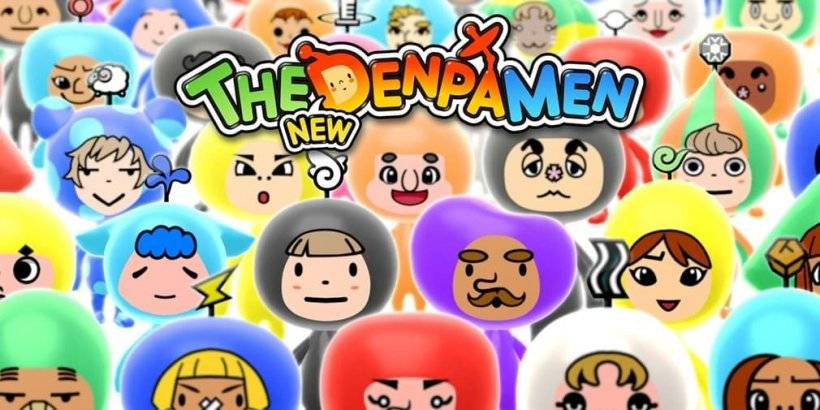It’s been a whirlwind 48 hours in the news, especially if you're tuned into economics or are a fervent Nintendo enthusiast. On Wednesday, the gaming community was hit with the news that the Nintendo Switch 2 would be priced at a steep $450 in the United States. Analysts attribute this high price tag to anticipated tariffs, alongside other factors such as inflation, market competition, and the cost of components.
The situation escalated quickly when, last night, the Trump Administration unveiled extensive 10% tariffs affecting nearly every country, with significantly higher tariffs imposed on key nations including China, the EU, Japan, Vietnam, Canada, Mexico, and many more. In a swift response, China declared a 34% reciprocal tariff on all U.S. goods this morning. Just hours later, Nintendo responded by delaying pre-orders for the Nintendo Switch 2 in the U.S. to assess the impact of these tariffs on their plans.
This unprecedented scenario is leaving everyone, from gamers to industry analysts, grappling with the potential ramifications. The shockwaves were still reverberating when, merely 30 minutes before Nintendo's announcement, I had a chance to discuss these developments with Aubrey Quinn, a spokesperson for the Entertainment Software Association (ESA), about the broader impact of the tariffs on the gaming industry.
The ESA, like the rest of the world, is still piecing together how these changes will unfold. According to Quinn, while tariffs were anticipated due to previous actions and campaign promises from the Trump administration, the scale and retaliation from countries like China were expected, yet the full impact remains uncertain. Nonetheless, the ESA is confident that these tariffs will negatively affect the video game industry.
“We really are, at this point, just watching and trying not to have knee-jerk reactions, because we don't think that what President Trump announced this week is the end of the story, but what was announced this week and the tariffs as outlined, we do expect these tariffs will have a real and detrimental impact on the industry and the hundreds of millions of Americans who love to play games,” Quinn stated. “And so our goal is to work with the administration, to work with other elected officials to try to find a solution that doesn't damage U.S. industries, U.S. business, but also American gamers and families.”
Quinn emphasized that the impact goes beyond just higher console prices, noting, “It’s hard to imagine a world where tariffs like these don’t impact pricing.” She also pointed out that consumer spending, company revenue, employment, research and development, and even the design of future consoles could be affected. “The entire consumer ecosystem is connected,” she added.
In response, the ESA is taking action, though Quinn admits it's been challenging to get started due to the recent change in administration and the new appointees. The ESA has already engaged in discussions with U.S. trade representatives and is seeking further dialogues with legislators and administration members.
When asked about the effectiveness of these efforts, Quinn confirmed, “Yes. I can tell you conversations are happening with... I don't want to say every level. I've not met with Trump, right? So I don't want to say every level of government, but certainly we've met with members of the administration. We've met with employees at the White House, we've met with employees at USTR [the office of the United States Trade Representative], so yes, we are having conversations and we're also doing that in partnership with other associations to make sure that... This isn't a video game issue. I represent the video game industry, so I'm very aware of the impact on the video game industry, the potential impact, but it's not a video game industry. This is going to affect all consumer products from food to fashion to electronics.”
For concerned consumers, Quinn suggested reaching out to their representatives through letters, calls, emails, or tweets to voice their concerns. “I think the more members of government, elected officials, and their staff who hear that their constituents are concerned, the more likely we are to be heard and to potentially make an impact,” she said.
Nintendo's decision to halt pre-orders for the Nintendo Switch 2 came shortly after our conversation. When asked for further comments, Quinn reiterated that the ESA does not comment on actions taken by individual companies. However, she highlighted the broader impact of the tariffs on the gaming industry, noting, “You know what? It's been interesting with media coverage around video games and tariffs because just unfortunate coincidental timing that the Switch [2 reveal] was the same day as President Trump's announcement. There are so many devices we play video games on. There are other consoles, but as I was saying, VR headsets, our smartphones, people who love PC games, if we think it's just the Switch, then we aren't taking it seriously. This is going to have an impact.
“And even American-based companies, they're getting products that need to cross into American borders to make those consoles, to make those games. And so there's going to be a real impact regardless of company. This is company-agnostic, this is an entire industry. There's going to be an impact on the entire industry.”








